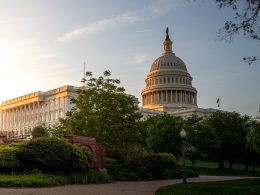Justice is a fundamental human right, but unfortunately, not everyone has equal access to it. Marginalized communities such as people of color, women, LGBTQ+ individuals and low-income earners often face significant barriers when seeking justice. These barriers can range from financial limitations to social stigma and systemic discrimination. In this blog post, we’ll explore the importance of breaking down these barriers and ensuring that everyone has equal access to justice. Join us as we delve into why access to justice matters for marginalized groups and how we can work together towards a more inclusive society.
What are marginalized communities?
Marginalized communities are groups of people who experience social, economic or political exclusion due to their race, gender identity, sexual orientation, religion or other factors. These individuals often face significant challenges in accessing basic human rights such as healthcare, education and justice.
For example, people of color may be subject to systemic discrimination and bias within the criminal justice system. Women may face barriers when seeking legal recourse for issues such as domestic violence or workplace harassment. LGBTQ+ individuals may struggle to find lawyers who understand their unique needs and experiences.
Marginalization can occur at both individual and institutional levels – from discriminatory hiring practices to biased court rulings. It’s important to recognize that these issues are not isolated incidents but rather a reflection of broader societal inequalities.
By understanding the challenges faced by marginalized communities in accessing justice, we can work towards creating a more equitable legal system that serves everyone regardless of their background or identity.
What barriers do marginalized communities face in accessing justice?
Marginalized communities face a myriad of barriers when it comes to accessing justice. These communities are often discriminated against, stigmatized and excluded from mainstream society. One of the biggest barriers is lack of access to legal representation due to poverty, language barriers or geographic location.
Furthermore, marginalized communities may not trust the legal system due to past experiences of bias and discrimination. This mistrust can prevent them from reporting crimes or seeking help when they need it most.
In addition, systemic issues such as racial profiling and discriminatory laws can create further hurdles for marginalized groups trying to access justice. Many members of these communities also lack knowledge about their rights and how the legal system works.
These barriers contribute to a cycle of injustice that perpetuates inequality and discrimination. It is crucial that we work towards breaking down these barriers so that all individuals have equal access to justice regardless of their background or circumstances.
The importance of breaking down these barriers
Breaking down barriers to access justice for marginalized communities is essential. The importance of this lies in the fact that everyone deserves equal treatment under the law, regardless of their background or social status. When certain groups are unable to access justice due to systemic barriers, it leads to a lack of trust and confidence in the legal system.
Moreover, when marginalized communities cannot receive fair representation and protection from the law, it perpetuates cycles of poverty and discrimination. This is because they may not have access to resources that could help them improve their lives or protect themselves from harm.
Breaking down these barriers can also lead to greater societal benefits such as increased diversity and inclusivity within institutions responsible for upholding justice. When all members of society feel they have an opportunity for just treatment if ever needed, there will be less resentment towards authority figures.
Breaking down barriers requires acknowledging and addressing structural issues within existing systems while promoting meaningful engagement with affected communities. By doing so, we can ensure everyone has equitable opportunities for accessing justice when needed – leading ultimately towards more cohesive societies built on mutual respect between citizens regardless of their background.
How can we break down these barriers?
There are various ways that we can break down the barriers that marginalized communities face in accessing justice. One of these is by increasing awareness about the legal system and how it works. This can be done through community education programs, legal clinics, or even just making information more accessible on government websites.
Another way to break down these barriers is by providing free or low-cost legal services to those who cannot afford them. This could involve pro-bono work from lawyers, partnerships with non-profit organizations, or government-funded initiatives.
It’s also important to address systemic biases within the justice system itself. This means addressing issues such as racial profiling and discrimination within law enforcement and ensuring diversity within the judiciary.
Furthermore, involving marginalized communities directly in decision-making processes around access to justice can help ensure their unique needs are being met. This could involve creating advisory committees or partnering with community organizations.
Ultimately, breaking down these barriers requires a multifaceted approach that addresses both individual and systemic issues. By working together towards this goal, we can create a more equitable justice system for all members of society.
Conclusion
Access to justice is a fundamental right that every individual deserves regardless of their social status or background. Marginalized communities face numerous barriers in accessing justice, including lack of resources and systemic biases. However, it is crucial that we work towards breaking down these barriers to ensure equal access to legal services for everyone.
As individuals and as a society, we must actively engage in efforts aimed at providing marginalized communities with the necessary tools and support they need to overcome these obstacles. This includes improving education on legal matters, increasing funding for legal aid programs, reforming laws and policies that disadvantage certain groups, and promoting diversity within the judicial system.
By addressing these issues head-on through collaboration between community leaders, policymakers, lawyers and other stakeholders in the justice system; we can make significant progress towards creating a more equitable society for all. Let us remain committed to working together toward this goal so that every person has access to justice irrespective of who they are or where they come from.












